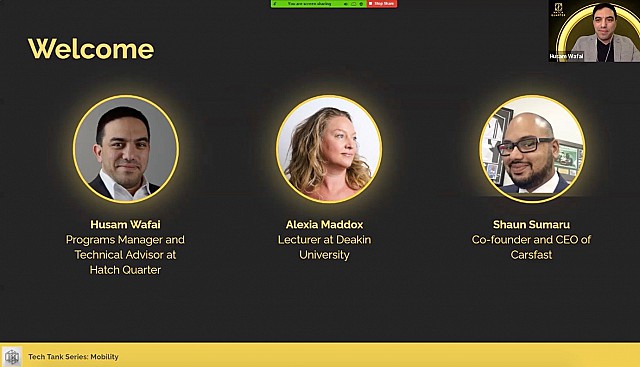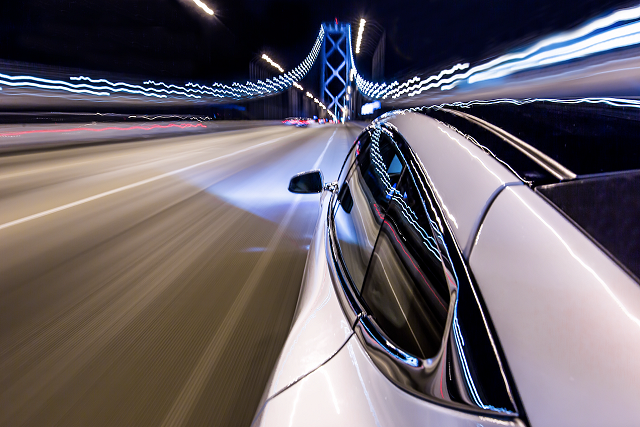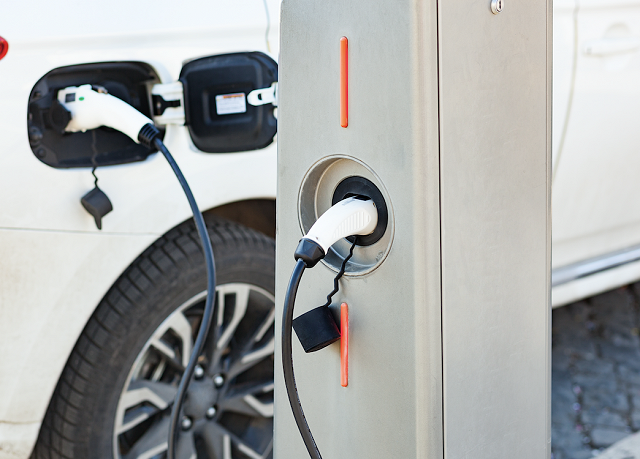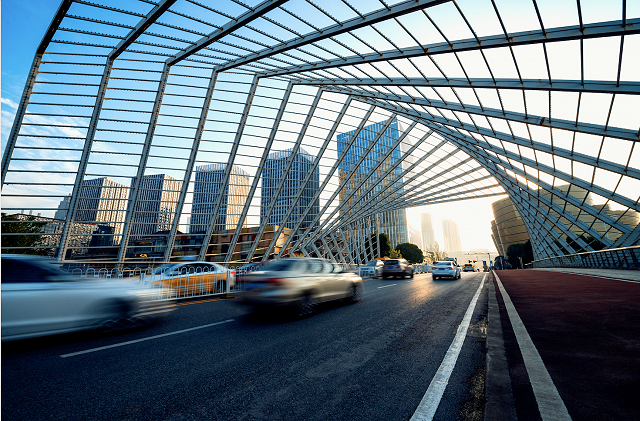Introduction

Kicking off the event series is Tech Tech Mobility: an exploration of the technological forces shaping the future of travel. Alongside the HQ team, we invited Alexia Maddox, Lecturer of communication at Deakin University and Shaun Sumaru, Co-founder & CEO of Carsfast. In this blog, we aim to provide some of the speaker’s key insights surrounding the paradigm shifts influencing, or set to influence, the Mobility Industry.
Paradigm Shift 1 - Away from Fossil Fuels
The moving away from fossil fuels is happening through shifting from conventional internal combustion engines to electric motors that are powered by batteries or hydrogen fuel cells. This trend started a while ago and is a necessary shift for our planet.
Q. What are the main driving forces and hurdles to move to a completely electric motor-based mobility (regardless of batteries or hydrogen)?
Shaun. It comes down to the market and culture. The Australian selection and acceptance of EV have been slower uptake and that’s due to a couple of reasons. Australia is a smaller market on a global scale and the options and opportunities in the EV market are also limited. For example, when we consider hybrid car models we think of Toyota and not many more. Cost is also a major factor, while user experience is desired by consumers, the price does jump in levels with every additional feature added to a vehicle.
Though consumers may be open to the idea of an electric vehicle, there is still the anxiety as the general market does not know what it means, how long charges take. Australians will need to adapt as it could mean changing their lifestyle.
Q. How big of a factor is the environment when choosing between a conventional car and new electric car? Or Is the decision eventually driven only by cost and user experience?
Alexia. There are a few takes on this. The idea of air quality has been brought about with the pandemic and does align with a few of the predictable reasons as to why people choose EV. Essentially, financial factors usually outweigh environmental consciousness. But this is based on a research pre-pandemic. Other factors include technology, perceived performance (user experience), environmental consideration, and social factors.
According to qualitative research, once a consumer purchases a possession it becomes symbolic and part of their identity. One logic people used when deciding to buy an EV was ‘it doesn’t take oil’, as in oil was a dependency on a foreign country and a form of independence. So when it came down to reasons for purchasing a vehicle, a lot were implicit and would be for portraying their values through their possessions.
Paradigm shift 2 - Sharing Economy
Until right before Covid-19, ride and car-sharing was considered a booming industry. However, the pandemic has forced us to ask some hard questions. The first of them is whether it is safe, from the health point of view, to share rides, but also about ownership itself.
Q. How deep does the desire for car ownership go? Is it just a personal preference, meaning that some people actually don’t really care about owning a car and just want to get where they want? Or is it a matter of affordability?
Alexia. Research is indicating that car sales are decreasing and are pointed towards the millennials having less ownership of cars. The reasons as to why people relinquish car ownership had a variety of factors; gender, generation, logistics (commuting patterns, history). Furthermore, with the pandemic, all the following trends will be slowed down and have a longer tail impact afterwards. As for affordability, it is the luxury end where people are capable of owning those vehicles. That is where the sharing industry comes in and as vehicles continue to change, this transition will come through.
Q. What do you think of the new buzz word—MaaS (Mobility as a Service)? What are the pros and cons?
Shaun. The better buzz word might be Covid-19. The pandemic killed the sharing economy whether it be car-sharing, ride-sharing. People are more likely to be exploring personal transport at the moment as a vehicle gives you a safe bubble, it allows you to have your own space. As personal vehicles became a safety bubble in the Mobility industry it has become an important trend and seen on a daily basis. MaaS is a great attraction and business. However with Covid and the lockdown, as we move more and further with easing of restrictions, the sharing economy, the way people handle and communicate, will all be changed. Whilst the idea of MaaS is admired, the outlook does not seem to be angling that way as people are likely to rely on their own vehicles. Mobility is not simply about A to B anymore—it is about staying safe.

Paradigm Shift 3 - Self-Driving
Since the invention of the automobile, driving decisions were made by the individual driver of the vehicle. Traffic rules and physical signs provided guidance to inform drivers of acceptable decisions, but no one other than the driver has control over the vehicle. Self-driving is about to change that for the first time in history.
Q. From a market point of view, do you think that self-driving is perceived by customers as a necessity or luxury? And is it easy for the market here in Australia to adopt self-driving on a mass scale?
Shaun. We live in a society where not everyone is created with equal reaction times or the same driving education and culture, and that is what it comes down to. Self-driving is a great way to move through cities, be efficient, save time. This is likely to help the environment as well, it would change how traffic operates and how dense areas such as cities would operate as well. As for Australia, on a global scale, it is a small market and adoption can be slower. Also, being a right-side driving culture, with roads and regulations that are different, can manufacturers have to adapt self-driving systems to our rules? It will also depend on how fast it is adopted by the government.
Q. Whenever the topic of automation comes up, people worry about lost jobs, meaning that self-driving will leave thousands of drivers of all sorts jobless. Is this fear justified? And if yes, how to tackle it?
Alexia. With self-driving technology, it is unlikely to bring about sudden unemployment as there is time for this to occur. If self-driving cars were introduced in a mass quantity and were adopted by everyone suddenly, then that would be a different scenario. However, this change is likely to occur over time eventually so there is time for people to prepare. We also need to understand that self-driving will not automatically be replacing the need for a person to drive a vehicle. That would be an incorrect assumption. My biggest concern would be the sociological impact that this technology may induce if brought abruptly. Take for example, a large population of heavy truck drivers are old males and would be a cohort of people at risk of job loss with self-driving technology. A loss of a job will likely bring about loss of identity and disempowerment. In the worst case, it could lead to polarised politics that is toxic. It would be important to prepare for labour market planning, for an occupation to understand the impact in every industry, not just them, and to create an ecosystem for support and re-education.

Paradigm shift 4 - The Connected Vehicle
Very relevant to the topic of self-driving is connectivity, where the computer of the car literally goes live and online. Two main types of connectivities are emerging simultaneously: Car to car, and Car to the internet. Together, this “Internet of Vehicles” era promises to bring a next-generation user experience, safer travel through coordination, and more efficient traffic system through big data. On the other hand, privacy and cybersecurity also now become a concern with cars, just like with our laptops and smartphones.
Q. How do you see the pros and cons weigh against each other? What will be the social impact of a fully connected car?
Alexia. The pros would be bringing the Internet into Vehicles. You could turn your vehicle into a workplace. But this also means becoming dependent on the vehicle for data collection and can bring its own risk such as hacking. But I would like to raise the topic of personal data ownership. It is estimated that on average the vehicle could create 25G/hour and 4000G/day. This is 4000G of user engagement including where you're going, passenger number at what time of day, and web browsing. So where does this data go and who owns it. Apparently, if you do not own the actual vehicle, you do not own the data. Then who does? There will be bigger questions to ask and resolve.
Q. Will the internet of vehicles open the door for a next digital app revolution, like the smartphone app revolution and PC software before that? What roles do you see startups playing in this trend?
Shaun. Yes and No. These vehicles create massive amounts of data that is both valuable and dangerous. As a founder, there are so many applications and opportunities that one can look to exploit the market and fit consumer needs. However we are seeing with the higher technological cars (e.g. apple play), there are restrictions and barriers of entry will likely be high. There are lots of startups who are also interested in extracting data from vehicles. This trend is already here and people are accepting to waive control of their data for user experience, live updates and convenience.
Paradigm shift 5 - Superfast
The hyperloop, supersonic planes, and space rockets, all are emerging and aiming to cut long-distance travel time significantly. Hypersonic planes are the most mature and tested hyperspeed vehicles. And they are particularly relevant to us here in Australia.
Q. Do you think hypersonic or space transportation will be important for business operations?
Shaun. The concept is not new (Bullet trains in Japan), it is definitely evolving and proven its benefits of efficiency. Australia does also have the ability to employ this trend but has yet to. It would be great to have this and enable a trip let’s say from Melbourne to Sydney in an hour by train will likely to increase users and travellers. Hard to say the uses of it for startups at the moment, but transportation is changing and evolving, it will happen sooner or later.
Q. Does technology actually change the natural distribution of preference in the population?
Alexia. We are extremely and densely connected where we can connect across the globe to purchase goods and services. But basically, if you put a railway between two cities where one city is supply and another demanding, there will be an exchange and a lot of interplay between them. Then you will see cities along the line, so there is a history where population and patterns of the organisation are intertwined with information, transportation and infrastructure.

The Takeaway
Mobility is developing continuously, increasing speed, comfort, partial automation, and safety. These transformations are hitting the market at different scales and businesses need to start preparing and adapting now. Avoid becoming an outdated business by refining details, updating technology and systems. While the paradigm shifts mentioned here may not occur overnight, change of business and innovation doesn’t happen overnight either.
Find out more about HQ Tech Tank: Mobility from the previous article (here) and Tech Match Matrix (here).
To register for the next HQ Tech Tank series events early and be part of the conversation, visit our Eventbrite page.
About HQ Tech Tank: The Tech Tank is an initiative that we have created here in Hatch Quarter to foster a human-centric understanding of how emerging technologies are posed to impact certain industries. The series facilitates hosted discussions to look into the future trends of multiple industry sectors, how it will affect our community and market, and how businesses can adapt and benefit from the coming paradigm shift.
Disclaimer: The information provided in the webinar and in this blog is strictly for educational purposes to explain government incentives and startups, and it does not constitute investment, accounting, financial, legal or tax advice. It has been prepared without taking into account your personal objectives, financial situation or needs. Before acting on any information you should consider the appropriateness of the information having regard to your objectives, financial situation and needs.